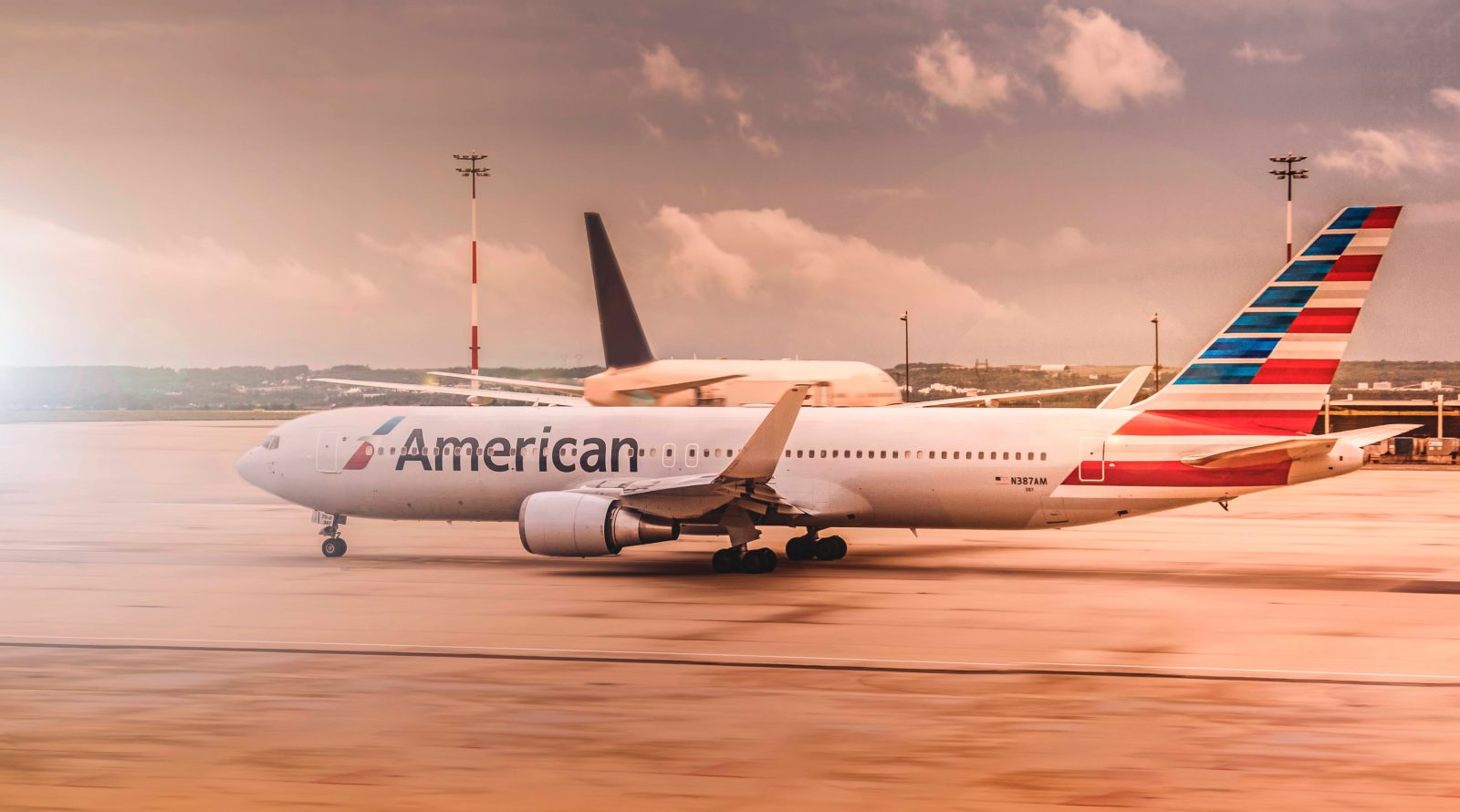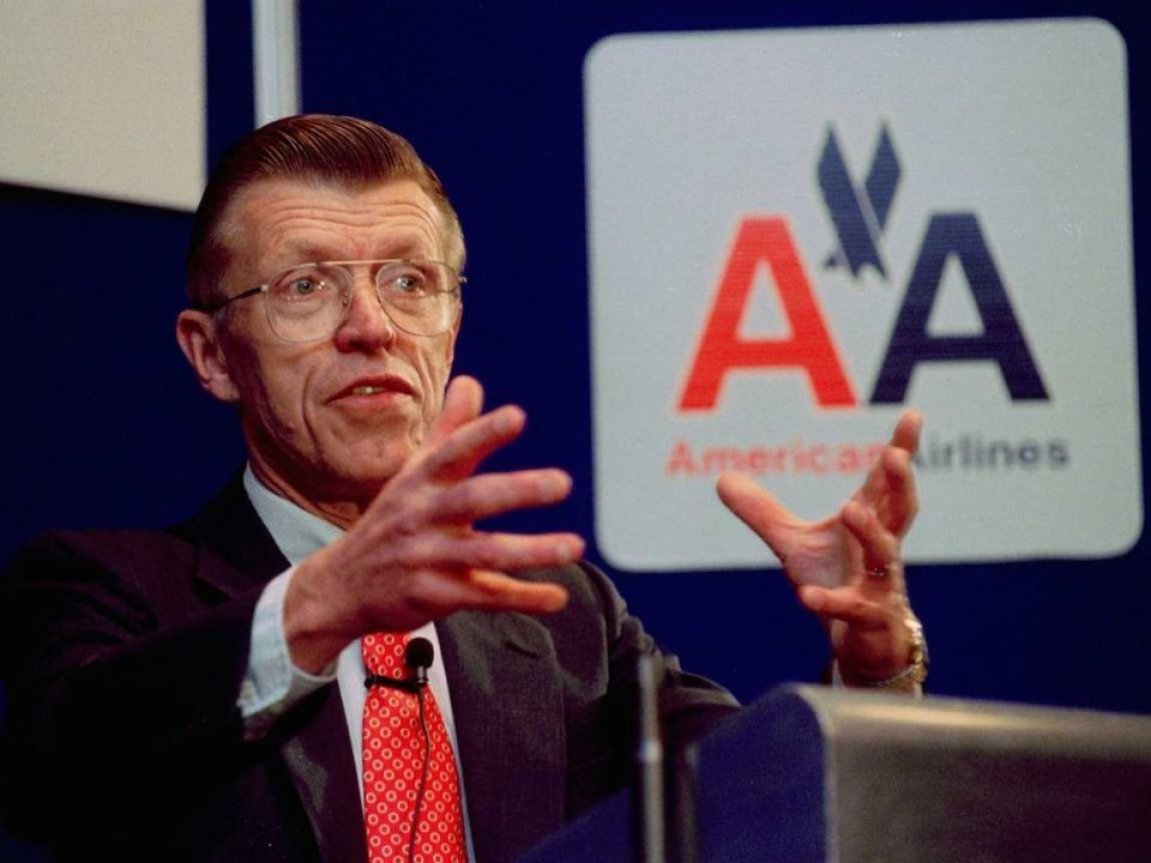
A grassroots campaign has begun to reinstate the former Chairman and CEO of American Airlines who famously ordered the removal of a single olive from every salad served in First Class – a move that would save the airline an estimated $40,000 a year without passengers noticing a thing.
Bob Crandall, who retired from his position at AA in 1998, wasn’t afraid of cost-cutting or negotiating hard with the unions but some insiders think they’d be better off with Crandall at the helm rather than the incumbent, Doug Parker.
And with shares in the world’s largest airline now trading at a three-year low you can perhaps see why. While Parker has seemingly made key decisions in a bid to please Wall Street, his predecessor used to warn employees of the dangers of investing in airline stock. “This (American Airlines) is not an appropriate investment,” Crandall once told an interviewer.

“It’s a great place to work and it’s a great company that does important work. But airlines are not an investment,” he continued.
Credited with creating the world’s first airline frequent flyer program – AAdvantage – in 1981, Crandall’s achievements also include pioneering work on yield management and the creation of modern-day reservation systems.
Yet Crandal, 81, was also a fierce critic of airline deregulation that took place through the ’70s and ’80s. Rather than encouraging competition and creating more customer choice, Crandall maintains that deregulation has had the exact opposite effect.
“At the time when we opposed it, when I opposed it, we took the view that it was likely to result in a relatively unsatisfactory transportation network, and I think that’s happened,” Crandall told industry publication Skift last year.
“If you look at the number of cities that have lost commercial service, you’ll see there’s a whole lot of places in the country that used to be part of the network that aren’t anymore.”
Deregulation has led to consolidation and in turn, a lack of competition Crandal argues. After Delta was allowed to merge with Northwest and United merged with Continental, it would have been impossible to deny the American and U.S. Airways merger. Crandall believes consolidation has been bad for consumers and for employees.
“If you had way more companies there would be way more competitive employers and you’d be seeing wage income, as opposed to capital income, increase at a much faster rate.”
“One of the reasons that there’s so much inequality in the United States, and one of the reasons that wealth is distributed so unequally, is all of the consolidations that’s occurred within industry.”
While relations with American Airlines and the unions have had plenty of up’s and down’s, many of the latest problems are borne out of the merger with U.S. Airways. Contract negotiations have turned sour and employees are at loggerheads with management.
Meanwhile, Parker seems set on pursuing every means possible to return capital to investors. A strategy that has alienated employees and left a big gulf in wages. Parker was paid $12 million last year despite the airline’s poor performance – both on Wall Street, as well as operationally.
The grassroots campaign has even created a dedicated website called BringBackBob.org. The creator says Crandall led the airline at a time that “customers, employees and shareholders ALL benefited.”
A post on the popular Crew Juice Facebook page sum’s up why people are calling for Crandall’s return…
Of course, it’s unlikely that Crandall will be invited back but perhaps it’s his mentality and approach to the business that employees would like to see embodied in a new CEO of American Airlines. Not that Parker has shown any sign of wanting to step down just yet.
Related
Mateusz Maszczynski honed his skills as an international flight attendant at the most prominent airline in the Middle East and has been flying ever since... most recently for a well known European airline. Matt is passionate about the aviation industry and has become an expert in passenger experience and human-centric stories. Always keeping an ear close to the ground, Matt's industry insights, analysis and news coverage is frequently relied upon by some of the biggest names in journalism.








I worked and retired from AA during the years Bob Crandall was CEO. In my opinion he was a fantastic
Leader of the company.